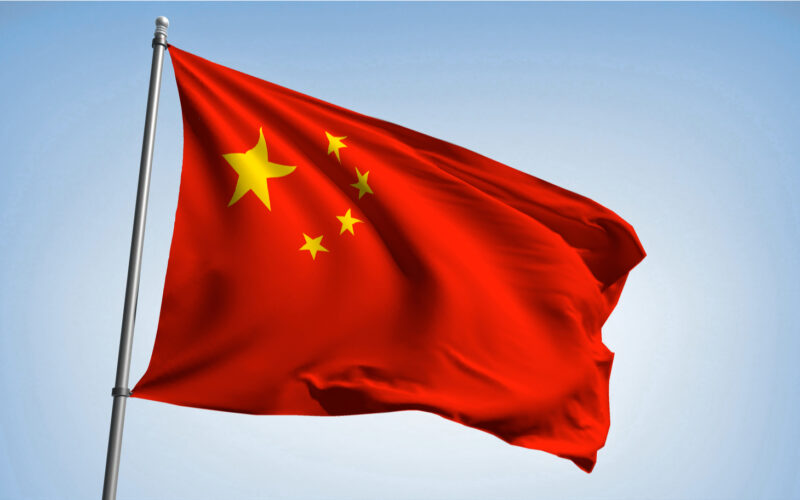A few weeks ago, Nigel Farage announced that his next big battle would be taking on China. Well, today we’re tackling the same issue in Fortune & Freedom. A battle which your government is doing its best to avoid. Because it doesn’t want to poke the dragon.
The backstory of genocide in Xinjiang is a long one. But it may be about to matter a whole lot less to our future. Because the term “genocide” has now got some proper legal backing, not just an extraordinary story to tell.
A formal legal opinion put together by a group of QCs sums things up like this:
On the basis of the evidence we have seen, this Opinion concludes that there is a very credible case that acts carried out by the Chinese government against the Uighur people in Xinjiang Uighur Autonomous Region amount to crimes against humanity and the crime of genocide.
You don’t want to know the gory bits. At least, they’re not our remit at Fortune & Freedom. We profiled them elsewhere more than a year ago, before the whole thing blew up into a global issue.
The question is where this goes next. And whether it begins to impact our economy and financial markets.
But before we can get to the consequences, we must mention some parliamentary skulduggery. To highlight just how hard our government is working to avoid confronting China.
Don’t go to court
The legal opinion published by the QCs is important because it suggests how the High Court may rule on the matter. If the High Court is allowed to rule on the matter…
You see, whether China’s actions in Xinjiang really are genocide can also be a political question, apparently. A special committee of the UK parliament can shoulder the responsibility of applying the “genocide” label instead of the court.
Believe it or not, it seems the UK government is keen on keeping things in the political arena. And it’s willing to go quite far to make it so.
Or, as the co-chair of the Conservative Party Human Rights Commission called it on Twitter, play parliamentary skulduggery:
 Source: Twitter
Source: Twitter
Now you might think that the UK had learned its lesson in 1939 when it comes to turning a blind eye to genocide. But you’d be wrong.
What the government is trying to stop
The genocide amendment in its original form is a fairly simply ploy. It would prevent the UK from doing bi-lateral trade with countries committing genocide. And what constitutes genocide would be decided by the courts.
This essentially corners the UK government on the moral high ground. And governments don’t like being cornered, especially on the moral high ground.
Given the QCs’ opinion, it looks like the High Court would rule that China is committing genocide. And UK/China trade would therefore be covered by the legislation.
But the government has adjusted the amendment to designate responsibility for declaring a genocide to a “responsible committee” instead of the court.
Legislative games are not our remit at Fortune & Freedom either. So we’ll spare you the details about combining amendments into groups, or whatever it is it did to avoid bringing the original amendment. It’s time we get to the investment implications of all this.
Don’t poke the dragon
The emergence of not-quite-so-communist-anymore China on to the global economic stage radically altered the global economy decades ago. In fact, China may be behind the majority of our global economic trends since then.
Former Federal Reserve chair Ben Bernanke blamed a “savings glut” for financing the US housing bubble which popped in 2006 and began the 2008 meltdown. He was referring to China’s savings.
The lack of inflation we’ve had over the past few decades? Thanks to cheap products made in China.
The boom in inequality? Thanks to workers having to compete with China.
Globalisation? Largely just trade with China.
And so on and so forth. You name the economic trend, I’ll name the economic expert who ties it to China.
Now I don’t agree with most of those narratives. But there’s no doubting that China’s emergence has played a vast role in our economies. So, what happens when China begins to cause trouble on a geopolitical stage? What happens when you have to choose between the largest economic boom going on in the world and the geopolitical fallout?
For the UK, this creates a dilemma. What’s more important? The economy, or our national security and morality?
What happens when you poke the dragon
Spare a thought for the Aussies, by the way. They’ve led the charge on accusing China of interfering in the Aussie economy and political system in underhanded ways, genocide in Xinjiang and the Covid-19 coverup. That’s despite their economic reliance on China.
And the Aussies copped it as a result, with a series of trade-war type policies. For the most part, it didn’t hurt the Australian economy much. Aussie exports to China are largely fungible. If the Chinese buy their resources from Brazil instead of Australia, then Australia just sells its dirt to whoever was buying from Brazil. The result of all the disruption ended up being higher prices for most metals…
Still, it was a huge gamble. And, when President Joe Biden was elected, the Aussies looked like they’d been left out in the cold alone. Their ally in challenging China, and key national security guarantor, could’ve turned pro-China just when the Aussies staked out their anti-China position. But so far, Biden is a China hawk too.
So, where does the UK fit in?
Well, so far it looks rather similar to the story of euroscepticism. The Tory base and backbench know genocide when they see it. They don’t need a “responsible committee” to tell them. They’re quite happy with courts and QCs, thank you very much. They want to take on China.
But the leadership has had other ideas. The Huawei 5G drama was just one example of how the game gets played.
What’s really going on here?
Lately, I’ve become inspired by the former Bank of England governor Mervyn King, of all people, to always ask the question: what is going on here?
In his book Radical Uncertainty, King and his co-author argue that this question is much better suited to untangling financial issues than complex models or equations. It’s a great book, especially the second half.
So, what is going on here? Or, perhaps we should add a bit to the question to make it more Fortune & Freedom friendly: what is really going on here?
Well, China does not like being confronted. Especially by the British. The history of this is rather painful and awkward. And the Chinese have a much longer memory than the British. I doubt many of us have heard of the Opium Wars, nor know much about them.
This means China is likely to react very badly to British interference. And the government knows this.
But on Friday Nigel Farage revealed what he thinks is behind the awkward political positioning in the UK: money.
Find out more here.

Nick Hubble
Editor, Fortune & Fortune




